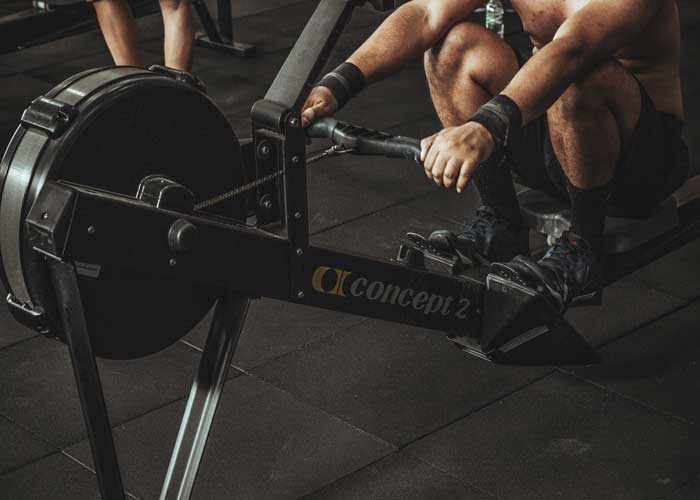Do you love rugby and fitness and have a career in mind where you can combine these two passions? A rewarding journey that necessitates commitment, expertise, and a thorough comprehension of both rugby and fitness principles is becoming a rugby fitness specialist. We’ll go over the steps you can take to carve out a lucrative career in this specialised field in this in-depth guide.
Key Takeaways
- Passion and Dedication: Bring a sincere passion for both rugby and fitness to your journey.
- Learn everything you can about rugby, fitness principles, and specialised training methods.
- Certification Is Important: Look for relevant certifications that are accepted by groups like World Rugby.
- Gain practical experience by completing internships or working alongside seasoned professionals.
- Build a Network: Make connections with industry experts, go to events, and use online resources.
- Continuous Learning: Keep up with the most recent developments in both rugby and fitness in terms of trends, technologies, and methodologies.
The Pathway to Becoming a Rugby Fitness Specialist
1. Understanding the Role
Rugby fitness specialists must have more than just a love of the game. It necessitates a thorough understanding of how fitness training can improve performance as well as the particular physical demands rugby players must meet.
2. Education and Training
Education in Rugby and Fitness
A strong foundation in rugby is essential for success as a Rugby Fitness Specialist. Register for programs offered by the Health and Fitness Academy- in Exercise Science and or a Diploma in Fitness. The subjects covered in these courses range from the fundamentals to more advanced coaching and conditioning. The UXi Rugby Institutes also offer the one-year programs in Sports and Conditioning with an internship. During this program the students shadow the professional coaches and learn from observation and participating in the actual fitness and gym sessions.
Students become rugby code specialist instructors which is in high demand in South Africa.
3. Certifications
Obtain certifications that attest to your knowledge. Your profile will gain credibility if you hold certifications from reputable fitness organisations and World Rugby. Think about certifications like:
- World Rugby Strength & Conditioning Level 1
- Certified Strength and Conditioning Specialist (CSCS)
- Personal Trainer Certification
- Rugby Coaching Certification: Focused on developing coaching skills specific to rugby.
- Sports Management Certification: Providing insights into the management and organisational aspects of sports.
- Strength and Conditioning Certification: Covering fitness and conditioning techniques tailored for rugby players.
- Scouting and Talent Identification Certification: Offering knowledge on identifying and nurturing rugby talent.
4. Practical Experience
Practical experience is priceless. Look for internship opportunities with rugby teams, fitness facilities, or with recognized Rugby Fitness Specialists. Utilise your theoretical understanding in practical situations.
5. Networking
Create a network among those who are interested in rugby and fitness. Attend conferences, workshops, and events pertaining to both fields. Make contact with industry leaders who can mentor you.
6. Continuous Professional Development
Rugby and the fitness industry are dynamic fields. Maintain an edge by keeping your knowledge current. Participate in webinars, workshops, and advanced certification programs.
Embark on this exciting journey of becoming a Rugby Fitness Specialist, where your expertise can contribute to the success and well-being of rugby players. Remember, it’s not just a career; it’s a lifestyle that merges the passion for rugby with the science of fitness.
Becoming a Rugby Fitness Specialist is a multifaceted journey that involves a deep understanding of the sport, specialised training techniques, and a commitment to the physical well-being of rugby players. Through the insights gathered from various sources, we can draw several key conclusions:
- Specificity is Key: Rugby fitness specialists need to tailor their training programs to align with the unique demands of the sport. This includes focusing on skills like strength, endurance, and agility that are crucial for success on the rugby field.
- Holistic Approach: The role of a rugby fitness specialist goes beyond physical conditioning. It encompasses aspects such as teamwork, cooperation, and respect for fellow athletes, contributing to the overall development of players.
- Professionalisation in Schools: The landscape of rugby fitness is evolving in high schools, with a growing trend of hiring professional coaches and conditioning specialists to enhance the training practices of young players.
- Adaptation for Non-Rugby Players: While the focus is on specificity, there’s recognition that certain aspects of rugby training can benefit individuals seeking all-round fitness.
In conclusion, becoming a Rugby Fitness Specialist demands a nuanced understanding of the sport, a commitment to player development, and the ability to adapt training methodologies for various contexts. The journey involves continuous learning, staying updated with the latest fitness practices, and contributing to the holistic growth of rugby players.
Please contact UXi Sport for further guidance.
Frequently Asked Questions
Q: Do I need to be a professional rugby player to become a Rugby Fitness Specialist?
A: Playing experience isn’t required, but it can be helpful. The key is having a thorough understanding of the game and being an expert in fitness.
Q: Are there online courses for becoming a Rugby Fitness Specialist?
A: Yes, businesses like World Rugby provide online education. Furthermore, a number of platforms for fitness education offer pertinent certifications.
Q: Can I specialise in a particular aspect, like injury prevention?
A: Definitely. Your expertise and marketability can be improved by focusing on things like injury prevention or training for particular positions.
Q: Is there an age limit to start a career as a Rugby Fitness Specialist?
A: There isn’t a set age requirement. Your enthusiasm, credentials, and experience are more important. You can still pursue this fulfilling career at any time.
Q: How can I stay updated on the latest developments in rugby and fitness?
A: Follow reputable websites, subscribe to industry publications, and interact with experts on social media. Regularly attend conferences and workshops.
Q: Can I specialise in youth rugby fitness?
A: Definitely. A complex comprehension of growth and development is necessary to specialise in youth rugby fitness. Think about taking more youth sports conditioning classes.
Q: What role does nutrition play in rugby fitness training?
A: Eating properly is essential for performance. Consider obtaining additional certifications in sports nutrition to round out your knowledge of fitness and offer all-encompassing instruction.
Q: How can I transition from a general fitness trainer to a Rugby Fitness Specialist?
A: Learn about rugby-specific information by taking courses and earning certifications. Create fitness training plans that include rugby-specific conditioning and exercises.
Q: Are there mentorship programs available for aspiring Rugby Fitness Specialists?
A: Mentorship programs are provided by some organisations and seasoned professionals. Finding these opportunities requires industry networking.
Reference
- World Rugby – Training & Education
- Rugby Renegade – Ultimate Guide To Get Fitter For Rugby
- Rugby Warfare – Rugby Training & Fitness Guide
- Webber Nutrition – Rugby Players Diet Plan
- Springboks.rugby – Physical Conditioning for Rugby Players
- PubMed Central – Physical and Fitness Characteristics of Elite Professional Rugby Union Players
- Ruck Science – Most Important Rugby Exercises and Why?
- Rugby Renegade – How Much Fitness Do Rugby Players Need?
- Bleacher Report – Rugby Dictionary; Terminology
- ResearchGate – Cross-training in rugby: A review of research and practical suggestions




